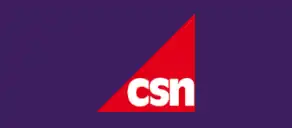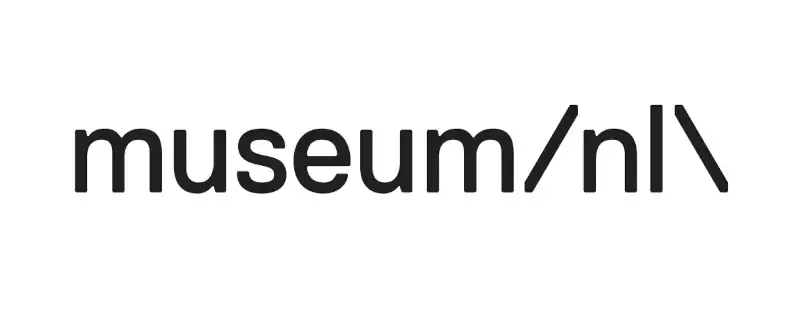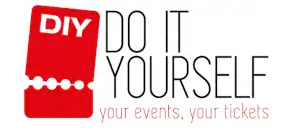For many new customers, NFTs add to the confusion already surrounding blockchain and cryptocurrency. As the NFT space expands, NFT websites must deliver a positive user experience that aligns with user expectations, even during high traffic events. Implementing a virtual waiting room solution allows sites to effectively manage traffic, reduce gas fees, and prevent website crashes caused by sudden spikes in website traffic. Whether it’s a small NFT drop or a high-demand event, Queue-Fair’s virtual waiting room helps navigate traffic surges, maintain website stability, and provide a smooth, quality experience.
Is the NFT boom just hype for major brands and trendy virtual providers? Companies like Gucci and Nike are actively exploring the NFT marketplace to boost engagement, but NFT drops bring real traffic management challenges that demand robust virtual waiting room software. Traffic management strategies and virtual queuing are critical for controlling visitor access during high demand events. Queue-Fair’s solution scales dynamically, effectively managing traffic flow and reducing server overload during peak times. Rising demand for digital assets and NFTs can overwhelm even the most prepared websites, making virtual waiting room software a crucial role in handling traffic spikes and preventing transaction failures.
NFTs are here to stay, generating major revenue across the NFT marketplace. But with that success come challenges like excessive transaction costs and traffic spikes. Queue-Fair’s virtual waiting room helps reduce gas fees, manage high traffic periods, and protect your NFT drop. With Queue-Fair’s virtual waiting room solution, your NFT website can handle high demand events and deliver a quality user experience that aligns with growing user expectations. By managing traffic spikes and improving service quality, your virtual waiting room becomes an essential tool for reducing transaction fees and keeping website visitors engaged and satisfied, ensuring that they have a fair chance to purchase NFTs without frustration.
What is an NFT queue?
An NFT queue is a queue page displayed to the NFT buyer when the NFT release goes live. It holds visitors in a virtual waiting room and automatically redirects them to the main site or purchase system when their queue position is reached—ensuring smooth traffic management and fairness. A well-designed queue page helps manage peak traffic patterns and gives each visitor clear information, estimated wait times, and the benefits of an organized system. This virtual queue experience improves customer experience, helps manage user behavior, and reinforces a first-in-line policy that builds trust and fairness. By managing high traffic periods, controlling website traffic, and utilizing apps, a virtual waiting room ensures website stability and a positive user experience for all participants.
By managing active users and holding visitors in the queue, NFT websites can maintain the integrity of the experience, allowing multiple devices to access the drop without overloading the system. This dynamic approach ensures a seamless, fair process for the most NFTs, reducing the likelihood of failure. Informed decisions are made at every step of the process, ensuring buyers know what to expect and can engage with confidence.
Finally, with dynamic tools to hold visitors and stop traffic overload, NFT buyers can trust the process. Realize the benefits of controlling traffic flow and scaling to meet the threshold requirements of high demand events. Your account remains protected as Queue-Fair's apps work seamlessly to handle surges, keeping the experience smooth and preventing site crashes, which is key to building a strong reputation. Whether you're dealing with sudden spikes, traffic surges, or managing multiple traffic sources, finally, NFT drops can proceed without unnecessary stress, stopping interruptions and ensuring everyone gets their fair shot at the most NFTs.

So, what on earth are non-fungible tokens?
NFTs have exploded in popularity over the past year, with major brands and businesses entering the market, spurring a surge in NFT releases. As demand increases, even the most robust websites can struggle to handle the resulting traffic surges, leading to increased server load, poor user experience, and inflated transaction costs. A waiting room is an essential tool to manage these peak visitor volumes and ensure your website remains operational during high demand events. By placing visitors in a virtual queue, you can manage excess traffic, prevent server overload, and reduce gas payments. A well-structured queue system provides clear status updates, estimated wait times, and reinforces a "first-in-line" policy, which builds trust and helps maintain a positive customer experience.
Additionally, NFT releases come with their own unique challenges in terms of visitor flow and behavior. With collectors eager to secure limited digital assets, managing this demand becomes crucial. By implementing a waiting room solution from Queue-Fair, you can effectively manage demand, prevent website downtime, and keep your release fair and smooth. Clear messaging within the queue helps manage expectations, reducing frustration and ensuring a better user experience. This also helps prevent unnecessary transaction costs, keeps visitors engaged, and ensures that your release stays aligned with your brand's image while delivering a seamless experience during peak events.
Non-fungible token
Fungibility refers to the ability to exchange one item for another of equal value. A pound (£) is fungible—you can trade it for any other pound. However, digital art, music, and collectibles are non-fungible, representing unique digital assets stored on the blockchain. This is where non-fungible tokens (NFTs) come in, as they are perfect for marketplaces, where exclusivity and ownership are highly valued. Whether it's your house, a signed football shirt, or even a custom toaster, no two items are the same, making them ideal for tokenization. Each token is a unique digital representation of a one-of-a-kind asset, offering value to its users—whether it's for the intrinsic value or 'cool points' for collectors. These tokens act as digital proof of authenticity, securely stored on the blockchain—a public record that tracks ownership, queue position, and transaction history. This visibility helps ensure transparency, maintain satisfaction, and support the integrity of successful projects.
NFTs can be almost anything. Originally launched as digital art, images, and GIFs, NFTs quickly expanded into music, social media posts, and all forms of digital assets. Today, they’re linked to physical items, used in virtual worlds, and traded across NFT platforms. From the clothes your avatar wears to the land you own, everything in these environments is tokenized as an NFT, offering complete control, verified ownership, and value on the secondary market. NFTs are here to stay, and they thrive in the evolving NFT space, thanks to their ability to provide users with complete control over their digital assets while unlocking new value on the secondary market. As user demand grows, it becomes increasingly important to maintain transparency, customer satisfaction, and service quality to ensure the long-term success of digital asset projects.
With the rising popularity of NFTs, maintaining a positive user experience across every NFT drop becomes essential. A well-designed virtual waiting room can help manage queue position and user behavior, ensuring fairness and reducing transaction fees, while preserving website stability during high traffic periods. This advanced system helps to deliver a seamless, stress-free NFT experience for users, building trust and reinforcing the integrity of your project.
Blockchain
What's blockchain, then? The mythical world where NFTs are born?
Blockchain is a digital ledger that powers NFTs, non-fungible tokens, and digital assets across the nft marketplace. It consists of permanent, digitally recorded 'blocks', each linked using a cryptographic signature. Every block is chained to the next, forming a secure, transparent record of user behavior, ownership, and transactions. This ledger is synchronized across global 'nodes', and all nodes must validate activity through consensus before new data is written—enhancing data integrity, security, and customer trust throughout the nft space.
This decentralized system supports smart contracts, guarantees data accuracy, and ensures website stability during high-volume nft drops. By using a virtual waiting room to control access and manage user behavior, vendors can protect server capacity, reduce transaction fees, and deliver a secure, user-friendly experience—no matter how intense the traffic spikes and high traffic periods.
Mining and minting
Mining is the process used to create new blocks on the blockchain, which secures non-fungible tokens, digital assets, and smart contracts. 'Miners' use computing power to solve cryptographic puzzles that verify transactions and maintain data integrity. Once a block is verified and added to the ledger, the system rewards the computer with Bitcoin or another cryptocurrency—a process critical to the functioning of the NFT space and the broader blockchain ecosystem.
Minting is similar to mining, but instead of solving cryptographic problems, validators create and register digital assets—including non-fungible tokens (NFTs)—onto the blockchain. To authenticate the data, validators commit a 'stake' and, in return, earn transaction fees, known as 'gas fees', paid by users during NFT drops or other blockchain-based transactions. This process helps ensure data integrity, security, and scalability within the NFT marketplace. Gas fees do not refer to energy consumption or carbon emissions, despite the name.
During busy NFT drops, the sudden influx of users can overwhelm networks and drive up gas fees, even for failed transactions. A virtual waiting room helps prevent server overload and regulates traffic flow, ensuring a smooth, environmentally friendly process that reduces waste and improves website performance. It’s a key part of effectively managing traffic during high-demand events and ensuring that your NFT website remains stable during peak traffic periods.

“I've seen them sell for millions-why are NFTs so expensive?”
Our human 'need' or 'want' for rare and exclusive content drives the value behind non-fungible tokens (NFTs). When a large number of users seek to claim ownership of a unique digital asset—be it digital art, collectibles, or tokenized property—an NFT auction often results. These auctions, common in the NFT marketplace, push prices higher as user behavior, demand, and traffic spikes collide during high demand events like NFT drops. This process illustrates how perceived value and scarcity translate into real-world gains for successful NFT projects.
So who’s buying all of these digital acquisitions? Mostly NFT buyers—people with a strong interest in owning a piece of digital history and enough capital to invest. As non-fungible tokens (NFTs) gain real monetary value, they’re actively traded in the NFT marketplace as speculative digital assets. Many view NFTs as long-term investments, with early NFT drops now selling for millions. Today’s new NFT projects can reach similarly high prices, especially during high demand events, as users seek to capitalise on rising market value.
To support fair access during these high demand events, a virtual waiting room helps maintain fairness and avoids chaos caused by sudden traffic spikes. By placing NFT buyers in an orderly queue system, platforms can ensure each has an equal chance to participate in token sales—minimizing frustration and delivering a positive user experience for collectors and investors alike. The virtual waiting room solution ensures a seamless experience while managing traffic flow and reducing the risk of server overload.
Successful NFT projects
There are plenty of successful non-fungible tokens projects launching each day. 2022 is set to see even more breakthroughs and applications than in the last few years.
And if you think NFT isn’t big business—think again. Some of the most profitable NFT projects of 2021 earned millions, as highlighted by Business Insider. Based on data from NFT marketplace research group nonfungible.com, total NFT sales in 2021 reached an incredible $14.4 billion, driven by skyrocketing demand, successful NFT projects, and surging user interest across digital assets.
- CryptoPunks - launched June 2017
Total trade volume $2.88billion, price per NFT: $288k
- Bored Ape Yacht Club - launched April 2021
Total trade volume $1.05billion, price per NFT $104k
- Decentraland - launched July 2020
Total trade volume $904million, price per NFT $9k
- Art Blocks Curated - launched May 2020
Total trade volume $805million, price per NFT $17k
- The Sandbox - launched October 2020
Total trade volume $490million, price per NFT $4.75k
Just like ticket sales for concerts and festivals, or the launch of new fashion lines, trendsetting products, or limited-edition sneakers, high demand from these product drops generates massive traffic spikes. Similarly, a poorly managed NFT drop can overwhelm a website's infrastructure, leading to server overload, website crashes, and frustrated users if no virtual waiting room is in place to manage traffic.

Unlike other queue use cases, queues provide additional benefits for NFT drops—addressing unique challenges that are specific to the NFT space. Some of these problems can’t be solved by simply adding more servers. Only a well-designed virtual waiting room solution can effectively manage traffic flow, control visitor access, and prevent server overload during high demand events.
So, how do we navigate a sizeable NFT drop? Selling NFTs online fairly is exactly what users expect. Without the right system in place, traditional selling methods expose them to inflated 'gas fees' during the 'minting' process. A virtual waiting room helps maintain fairness, manage queue position, and reduce transaction costs during high demand events.
What’s the answer to all of these NFT complications? A virtual waiting room for non-fungible tokens, of course—designed to handle high traffic periods, reduce server overload, and ensure a fair, seamless user experience.
By implementing a virtual waiting room solution before your NFT pre-sale or drop day, you can manage traffic flow efficiently and prevent website crashes, ensuring a seamless user experience. This critical precaution helps protect your main site and reduce transaction fees during high-demand events. It’s the best way to regulate queue position and meet modern user expectations—even when prices surge.
The NFT virtual waiting room
Fairness for NFT buyers relies on each vendor being prepared for overwhelming traffic with website-crashing potential. In the NFT marketplace, the risk of server overload and website crashes is real, especially during high demand events. Without a proper virtual queue, vendors risk frustrating users and damaging their brand’s image.
If, on drop day, a sudden traffic surge causes a website crash, you won’t sell a thing. Instead, you’ll be left with frustrated users and disappointed community members unable to access your NFT website, complete their purchase, or add your NFT to their collection. The result? Damaged brand’s image, lost revenue, and missed opportunities. A chaotic NFT drop without a queue system can lead to a negative user experience and reduced customer satisfaction.
It’s not an exaggeration—some of the biggest platforms have experienced NFT crashes simply because they didn’t implement an NFT queue. The smart operators now rely on virtual waiting rooms—just like Queue-Fair—to handle traffic spikes, prevent server overload, and ensure a smooth, fair NFT drop experience for their users. With Queue-Fair, you can manage traffic flow and maintain a website’s performance, ensuring users experience fairness and transparency during your NFT drop.
A properly managed virtual waiting room prevents server overload and website crashes, helping vendors maintain website stability and protect their brand’s image. With Queue-Fair, you can ensure website visitors enjoy a fair, stress-free experience—even during intense traffic spikes and peak traffic periods that overwhelm unprepared platforms. The system keeps users informed, maintains queue position, and helps vendors deliver the quality user experience they expect.





























